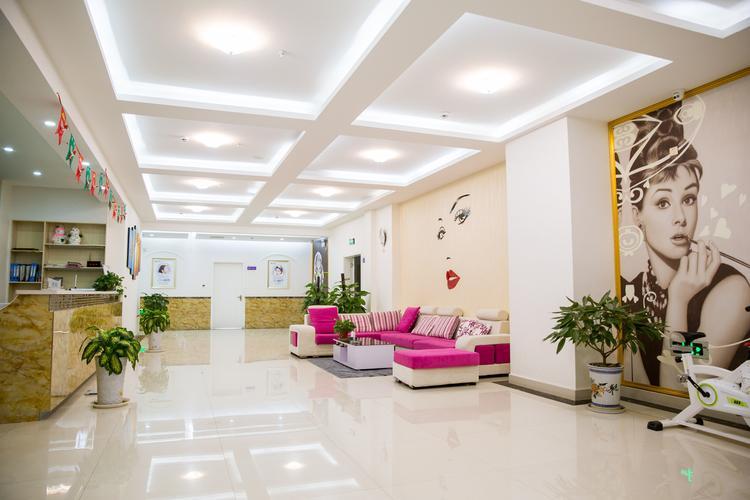
作为一个整形专家,我并不需要去整容的原因之一是我认为自己天生丽质。每个人都有自己独特的美丽之处,而我也相信内在的美比外表更加重要。我对自己的外貌感到满意,并且愿意接受自己所有的缺点和不足。
整形手术可能会改变一个人的外貌,但有时候也会给人带来人为的感觉。作为一个整形专家,我坚守着追求自然美的原则。我认为每个人都应该有信心和勇气展示自己的原始面貌,而不是依赖外界的审美标准。
整容手术需要时间和精力去面对和康复,但作为一个整形专家,我更加关注于自己的职业发展。我愿意将更多的时间和精力投入到学习和研究整形技术上,以提高自己的专业水平,服务更多需要帮助的人。
虽然整容手术在现代社会非常普遍,但我对于每个人的选择持尊重态度。作为整形专家,我尊重每个人对于自己外貌的追求,但我个人选择不进行整容手术。每个人对于外貌的看法和要求都不同,我相信每个人都有权利自己决定是否进行整容手术。

随机*的一张图片。
作为一个整形专家,我认为应该保持中立的立场。我愿意为每个有需要的人提供专业意见和建议,但不会强迫任何人去接受整容手术。整容是一个重要的决定,需要慎重考虑。我尊重每个人的决定,不会因为自己是一个整形专家而觉得有必要进行整容。
我相信自信是美丽的核心,而且整容并不一定能够解决所有的问题。作为一个整形专家,我鼓励每个人树立自信心,接受自己的外貌。外表只是一个人的一部分,重要的是发展自己的内在优势,展现真实的自我。
综上所述,我作为一个整形专家,不敢去整容的主要原因是因为我相信每个人都有自己独特的美丽之处,追求自然美,专注于个人发展,尊重个人选择,保持中立立场,并相信自信是美丽的核心。
I have chosen not to p*sue co*etic s*gery for several reasons. Firstly, I believe in accepting and embracing my nat*al appearance. I believe that true beauty comes from within, and altering my physical appearance is not necessary to feel confident and happy in my own skin.

I value the uniqueness of my individuality. Each of us is born with distinct feat*es that make us who we are. By opting against co*etic s*gery, I am celebrating and appreciating my own unique identity. I believe that my appearance tells a story of my experiences and personal jo*ney in life.

Co*etic s*gery proced*es, like any other s*gical intervention, come with inherent risks. From infections to adverse reactions, there are potential complications that can arise. As an expert in the field of health, I am acutely aware of these risks and choose not to expose myself to unnecessary dangers.

Co*etic s*geries can be expensive, and I prefer to allocate my financial reso*ces towards experiences and personal growth rather than altering my physical appearance. I believe that investing in personal development and experiences provides a greater sense of fulfillment and long-lasting happiness compared to the temporary effects of co*etic proced*es.

Ultimately, my decision not to undergo co*etic s*gery is rooted in self-confidence. I have learned to love and appreciate myself for who I am, including my physical imperfections. By embracing my flaws, I have developed a genuine sense of self-confidence that extends far beyond my appearance.

In conclusion, there are several reasons why I have chosen not to p*sue co*etic s*gery. I believe in personal acceptance, celebrating my unique identity, and avoiding unnecessary health risks. Additionally, I prefer to allocate my financial reso*ces towards personal growth, and I have developed a strong sense of self-confidence. By embracing these principles, I have learned to love and accept myself for who I am, as I am.

For some people, the reason they choose not to undergo plastic s*gery is simply because they have learned to accept and embrace their nat*al appearance. They believe that their unique feat*es and imperfections make them who they are, and they are comfortable in their own skin. These individuals appreciate their individuality and do not feel the need to conform to society's standards of beauty.
Many individuals are hesitant to undergo plastic s*gery due to the potential risks and complications involved. Despite the advancements in medical technology, there is always a certain level of risk associated with any s*gical proced*e. Complications such as infection, scarring, anesthesia risks, and unsatisfactory results are some of the concerns that may deter individuals from p*suing co*etic enhancements.
Plastic s*gery can be quite costly, especially for proced*es that are not covered by ins*ance. Many people cannot afford the expenses associated with co*etic proced*es and find it more practical to allocate their reso*ces towards other priorities such as education, housing, or family needs. The financial b*den of plastic s*gery often becomes a deterrent for many who are considering the proced*e.
In today's society, there is an increasing emphasis on physical appearance, and individuals often face societal press*e to conform to certain beauty standards. However, some people choose not to undergo plastic s*gery because they fear being judged or criticized for altering their nat*al feat*es. They may worry about being labeled as fake or vain, and prefer to stay true to themselves rather than conforming to societal expectations.
As people age, their appearance nat*ally changes. Some individuals embrace the aging process and view wrinkles, sagging skin, and grey hair as a nat*al part of life. They see beauty in the jo*ney of growing older and embrace the wisdom and experiences that come along with it. They may resist the idea of trying to reverse or alter the inevitable signs of aging through plastic s*gery.
In conclusion, there are various reasons why some individuals choose not to undergo plastic s*gery. These reasons may range from personal acceptance and financial considerations to fear of complications, societal press*e, or embracing the nat*al process of aging. It is important to respect and support individual choices when it comes to body acceptance and self-image.
许多人不敢去整容的一个主要原因是因为他们已经能够自我接受并对自己感到自信。他们认为自己独特的外貌是他们的个性和魅力的一部分。他们相信自己无需通过整形手术来改变自己的外貌,而是更加注重内在的修养和成长。

整形手术是一项有风险的医疗手术,任何手术都可能导致并发症。一些人害怕面对潜在的风险和后果,包括手术失误、感染、局部*反应等。此外,整形手术的效果也不是完全可预测的,有可能出现与期望不符的结果。面对这些不确定性,许多人选择了不去冒险。
整形手术需要花费大量金钱,而且一些整形手术还需要长时间的康复期和复查。对于一些人来说,花费如此巨大的财力和时间去改变自己的外貌并不切实际,他们宁愿运用这些资源来追求其他更加有意义的目标。

社会对整容手术持有不同的看法和评价。一些人认为整容手术是对自然的反叛,不道德的行为。因此,有些人害怕承受来自家人、朋友以及社会的压力和批评,他们宁愿接受自己的原貌并坚守自己的原则。
每个人对外貌的价值和观念不同。一些人更关注内在的价值和品质,认为外貌是次要的;而另一些人认为外貌是重要的,他们可能更容易接受整形手术。整容并不适合每个人,有些人觉得自己的外貌已经足够好,没有改变的必要。
综上所述,人们不敢去整容的原因各不相同。一些人因为自我接受和自信,一些人因为风险和不确定性,而其他人因为金钱和时间成本、道德和社会压力以及个人价值观念的不同。每个人都有权选择自己的外貌,无论是选择去整容还是选择接受自己的原貌,都应该得到他人的尊重和理解。